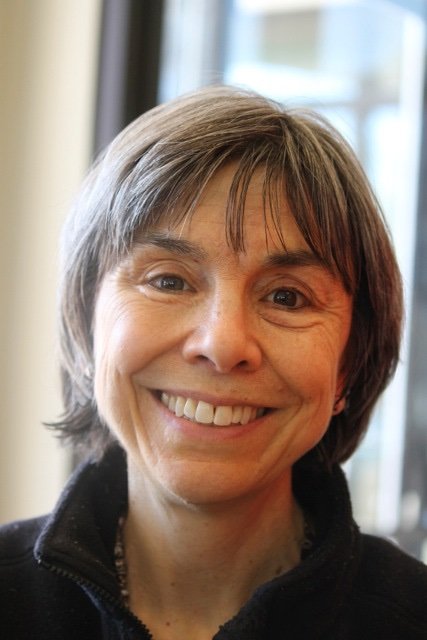When did you first encounter poetry? How did you discover that you wanted to write poems?
My mother read to me from a book of children’s poetry when I was very little. I soon after became obsessed with song lyrics on the radio and on the vinyl records we had. I made up lots of rhymes and lyrics; as soon as I could write I wrote poems.

Do you have a writing routine? A favorite time or place to write?
I write when the words come to me—as they often do when I’m walking, and don’t have a notebook at hand. Pre-pandemic, I used to write often on my Red Line commute. Often now, I write in the quiet early morning or before sleep.
Where do your poems most often “come from”—an image, a sound, a phrase, an idea?
Poems—beginnings of poems, anyway—come from all those sources. They bubble up from invisible places, things I half-consciously see, hear, or sense. Even ideas sometimes turn into good poems.
Which writers (living or dead) have influenced you the most?
I love a lot of dead poets: Chaucer, Shakespeare, Andrew Marvell, Gerard Manley Hopkins, WH Auden. I read a lot of living poets, too, but hesitate to name favorites among the living. Living poets whose books I liked a lot and have recently reviewed favorably are Robert Gibb and Audrey Henderson.
What excites you most about your new collection?
Creating a collection of poetry is an extraordinary voyage of discovery. I learn more about how to write, as well as how my poems relate to each other and form a coherent world. City of Stories is about the little piece of the world where I’ve lived most of my life, its layers of stories, and their intersection with my personal story. It’s also about the stories of my literary world, and how they form me, even as I talk back to them. It’s a collection that includes a lot of playful poems—a book of poetry that’s a lot of fun.
Aspiring Poet Seeks…
by Denise Provost
We know the Muses are all female, right?
That’s why men write most of our poetry.
I’m searching for a muse who’s just my type
and wants to spend quality time with me.
A lissome redhead tempted me, but then
came the deal-breaker: endless cigarettes.
A blonde Madonna whispered to me; when
I turned, she showed herself: heartless coquette.
There was a dark one once, with smudgy eyes,
whose heavy-lidded look was eloquent.
I leaned in closer, quick to sympathize,
but she strolled off, with some loquacious gent.
I can’t compete with Masculinity—
I don’t think the Muses will sing to me.

Long ago, Denise Provost attended Bennington College to study poetry. She then became a lawyer, worked in local government, and served in the Massachusetts House of Representatives for fifteen years She has published in such journals as Ibbetson Street, Muddy River Poetry Review, qarrtsiluni, Quadrille, Poetry Porch’s Sonnet Scroll, Sanctuary, and Light Quarterly.
Provost received the Best Love Sonnet award from the Maria C. Faust Sonnet Competition in 2012, and the New England Poetry Club’s Samuel Washington Allen Prize in 2021. Her chapbook Curious Peach was published by Ibbetson Street Press in 2019. Her collection City of Stories is forthcoming from Cervena Barva Press in 2021.
